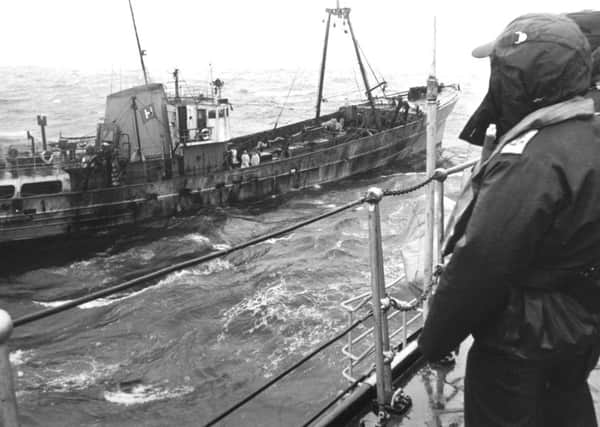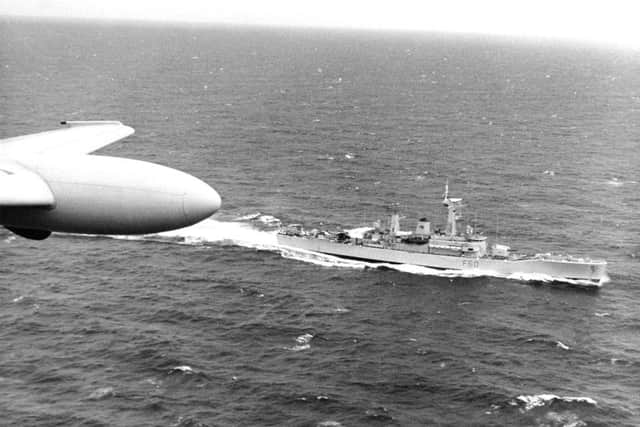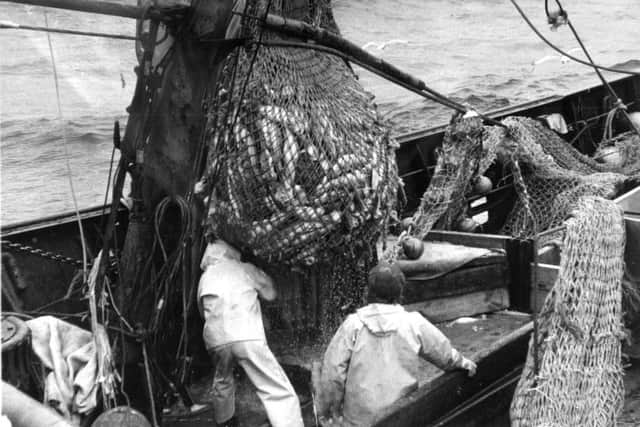How the Cod War of 40 years ago left a Yorkshire community devastated


There were few physical casualties from the battle over fishing rights in the prolific cold waters of the North Sea and even fewer medals awarded for gallantry during the Cod War, whose very name gives little hint of the terrible impact it had on British communities.
Nowhere felt the repercussions of the Cod War more than Hull, a city with a long and proud trawling tradition which spiralled into decline after the British fishing industry became a casualty of the strained relations between the West and the Soviet Union.
Advertisement
Hide AdAdvertisement
Hide AdThe ramming of the patrol boat Þór on December 11 1975 by British ships sheltering from a Force 9 gale off Iceland sparked a series of events that threatened the future of NATO and left Hull, Grimsby and Scottish ports paying a heavy price.


Disputes over the prolific cold waters of the North Sea were not new: British fishermen had come into conflict with their Norwegian counterparts off the Icelandic coast as far back as the early-15th century.
Iceland and the UK had also fought two bitter Cod Wars in the late-1950s and early-1970s over access to territorial waters and relations between the two nations was always strained.
The third Cod War was precipitated in November 1975 after Iceland declared a 200-mile exclusion zone around its waters, ostensibly to preserve fish stocks and increase the country’s share of bumper catches of cod and haddock.
Advertisement
Hide AdAdvertisement
Hide AdHowever the move was widely seen as illegal protectionism and produced vehement protests from the other European nations whose fleets had fished the seas off Iceland for centuries.


Following the incident involving Þór on December 11, the Royal Navy was deployed in force to protect British trawlers from being hounded by Icelandic boats, whose tactic of cutting the nets of trawlers inside the 200-mile exclusion zone was a blatant breach of international law.
Whilst its navy was dwarfed in size and firepower by Britain’s senior service, Iceland eventually played its trump card by threatening to close a strategically important NATO base at Keflavik and withdraw from NATO completely.
With the Cold War in full swing, and pressure being applied by the United States, Britain had no option but to capitulate, although the manner of that withdrawal from conflict remains the source of some acrimony.
Advertisement
Hide AdAdvertisement
Hide Ad“The other European nations had struck deals with Iceland which safeguarded their own fleets but there is a feeling that we allowed ourselves to be hung out to dry,” said Hull historian and university lecturer Dr Alec Gill.
“Defeat in the Cod War was catastrophic for ports like Hull and it’s only with the benefit of hindsight that we have been able to see how devastating it was.
“The closure of the coal mines had an immediate and tangible impact on those communities but the fishing industry fell into a gradual and terminal decline.
“An industry which had held national importance for centuries was dismantled by stealth and we are only now seeing the renaissance of Hull.”
Advertisement
Hide AdAdvertisement
Hide AdThe decommissioning of the North Sea fleet brought few benefits for the trawlermen or the thousands of people whose livelihoods depended on the fish landed at Hull’s docks.
“The trawlermen were left badly out of pocket; few of them received any redundancy payments and it was only after a long campaign led by people like Alan Johnson MP that some of them secured modest compensation sums,” added Dr Gill.
Four decades on, the wounds from the last Cod War have all but healed: Iceland has invested significantly in the city’s fish processing industry, many of the docks have disappeared and the city has adopted a new sense of vibrancy in readiness for it taking centre stage as the UK City of Culture in 2017.